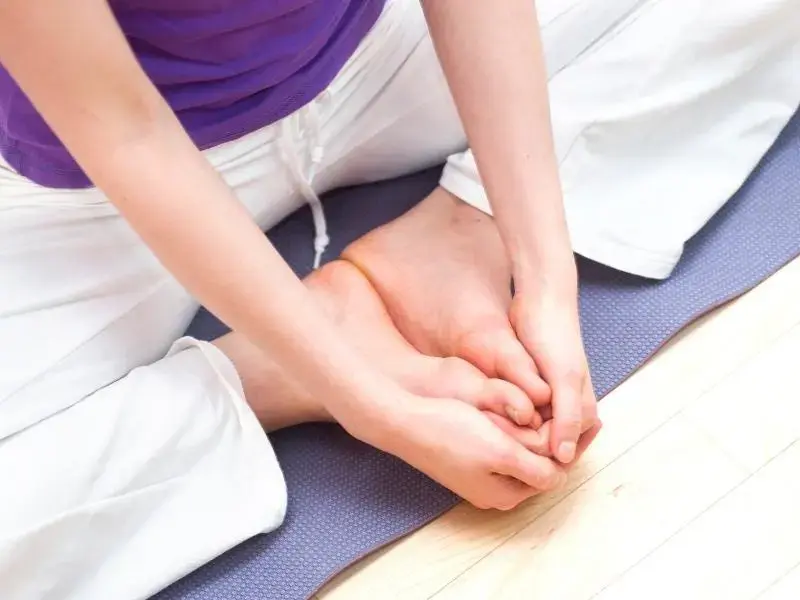Fix Your Low Back Pain, Part 1
- The Health Lab

- Aug 29, 2022
- 4 min read
Updated: Sep 29, 2022

Lower back pain is an ailment that plagues many adults and can vary from being simply uncomfortable to extremely painful in nature. If you tend to find yourself suffering from lower back pain, and especially if you find it to be a recurring issue, treatment can, and should, be sought out. A trustworthy, movement-based Physical Therapist will work to get you back to your daily life and activities through comprehensive treatment and care, without basing care off the age-old adage of “just take some time off and rest.”
If you would rather listen to Dr. Loren give a summary of this article, Click HERE.

Common Misbeliefs with Low Back Pain
It’s important to address some of the common misbeliefs associated with low back pain. If we can learn to disregard these misbeliefs, our seeking of treatment will be more proactive and productive. Misbeliefs tend to cause justification and acceptance of low back pain, when the reality is that this pain is not something you are bound to live with. Four common misbeliefs when it comes to lower back pain are:
Weak Abs If you’ve ever thought that your lower back pain was caused by weak abs, you are in good company. This is a common thought that leads to a delay in seeking treatment as it seems “easy” to remedy on your own by simply “doing more core work.” While adding core work is certainly not going to be a detriment to your overall fitness, it will not simply “fix” your lower back pain.

Poor Lifting Mechanics Good lifting mechanics are, of course, something to work

towards and aim for both in and out of the gym. As we get closer to a 1 rep max lift, it’s absolutely important to have a braced, straight back. It’s important mostly because straight lines are strong lines, and strong lines make resilient people. As a society we have inadvertently translated 1 rep max lifting mechanics and placed them into everyday life. To believe that we need a neutral spine to pick up a tissue box is insanity.
Poor lifting mechanics, however, are not typically an easy-to-blame culprit for lower back pain. We have found that when people receive training focusing on ergonomics and lifting mechanics, they are actually more likely to get injured. Conversely, when people are taught to lift weight, that “a strong back is a resilient back”, and that “movement is medicine”, they are actually less likely to get injured. In the end, we repeatedly see that fear of injury and avoidance of load is the biggest risk for future injury. So while poor lifting habits may add to or enhance your low back pain, it is not typically THE thing to blame for lower back pain.
“Old” Age It’s easy to blame our aging bodies for our physical ailments. It’s important to remember that while our bodies DO change as we age, and our body’s requirements might change, too, that we do not have to simply accept pain as a byproduct of getting older. One of the biggest misconceptions about age has to do with imaging. Everyone at some point is going to have arthritis in their back, degeneration in their disk, and narrowing of the holes that the nerves exit.

Amazingly, we start to see this in the majority of people in their fourth decade of life. The majority of back pain (in the US) occurs before the age of 65. Noting that back pain is therefore not growing with a higher frequency after 65, it’s clear that aging is not the primary indicator of back pain. This is because age doesn’t cause back pain; lifestyle, strength, habits, beliefs, and happiness are all greater indicators of back pain. It’s thought that the major drop in back pain at 65 in the United States is because that’s when most people retire, often from jobs that they have hated for many years, giving them relief from their back pain.
Being Overweight Our body weight can absolutely have an affect on our well-being and health. Regardless of our current weight, lower back pain cannot easily be pinpointed to being overweight. So, while working towards a healthy body weight is an excellent goal, lower back pain should not simply be something that is accepted as a result of being overweight.

The number of people who are of healthy weight with back pain is nearly the same number as the number of people who are overweight with back pain. While treatment for someone with low back pain who is overweight might look different, the immediate answer isn’t “just lose weight”. Typically, people who are overweight don’t have a strength issue, as moving through life with a few extra pounds makes the muscles nice and robust. The disadvantage stems more from the limitations of movement that the extra weight produces. Therefore, lowering limitations and regaining movement is key.

The good news is that people who are overweight recover the same as anybody else. So don’t let this misbelief hold you back from getting the recovery you most desire.
These misconceptions are deep rooted not only within our society but also within the medical system. Sadly, one of the biggest hurdles to enjoying a positive outcome from lower back pain stems from going into the medical system and being told one of these misconceptions.
Here at The Health Lab, we not only break down these misconceptions but also break through your pain. We work to build up your back to relieve pain, while working towards more mobility and more importantly, more resiliency. If you’re looking for real solutions to your back pain and want to see what we at The Health Lab have to offer, schedule your free 30 min discovery visit today.




Comments